
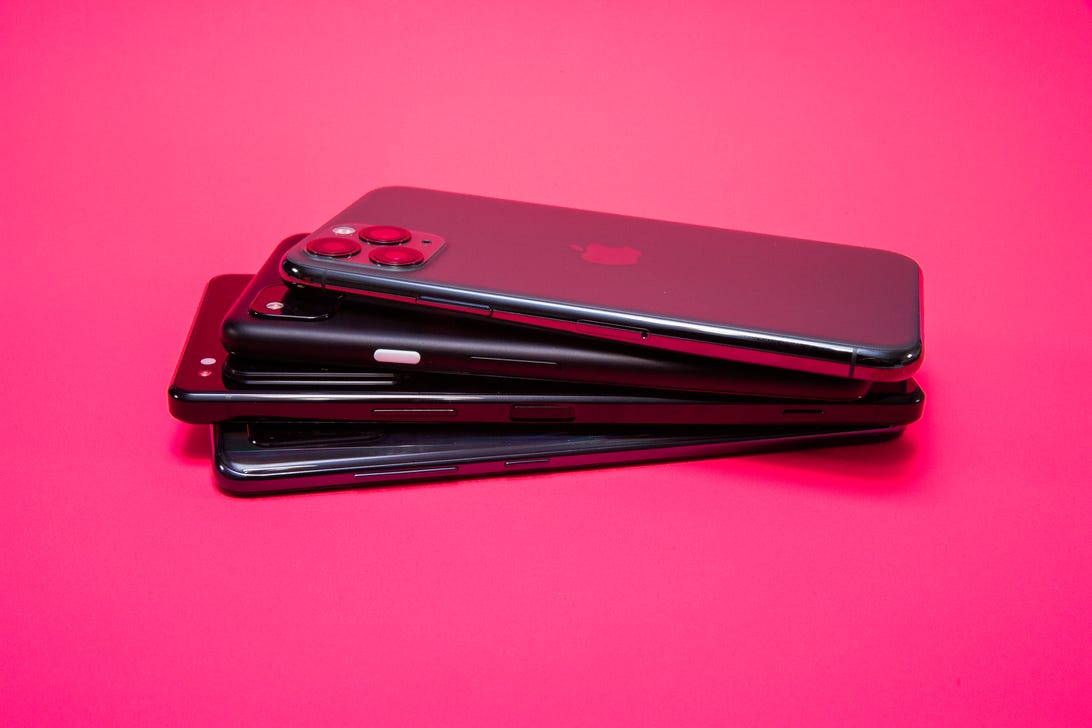
Apple and Samsung have already announced new phones, but we're still expecting many more new devices in 2022.
Sarah Tew/CNETApple introduced the latest version of the iPhone SE at its event earlier this week -- but this budget phone might not be everyone's cup of tea. If the SE's iPhone 8-style body doesn't appeal to you, don't worry: Plenty of other phones are rumored to arrive later in 2022. Samsung, Apple, Motorola and OnePlus have already announced several new mobile devices.
Here's a look at the phones we're looking forward to most in 2022 based on rumors and reports that have surfaced so far. We've also included a section at the bottom for phones that were previously on this list but have since been announced, such as Samsung's Galaxy S22 Ultra.
Apple iPhone 14 Pro
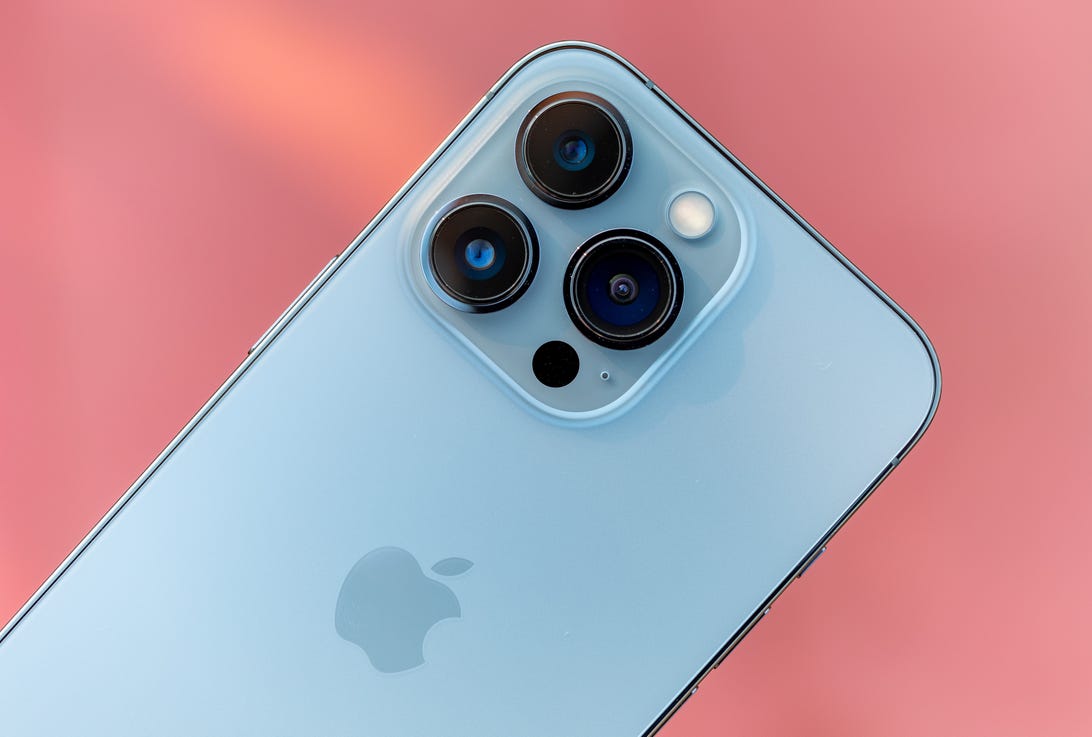
iPhone 13 Pro, Sierra blue
Stephen Shankland/CNETThe iPhone 14 Pro will likely have the standard updates you'd expect from a next-generation iPhone, such as a new Apple processor and maybe some design tweaks. But it's the new camera that seems to be the most exciting potential update. If the rumors are to be believed, the iPhone 14 Pro and Pro Max could have a 48-megapixel main camera. That's according to two reports from well-known Apple analyst Ming-Chi Kuo, as 9to5Mac and MacRumors reported.
Apple has improved the iPhone Pro's camera in many ways over the years, adding a third ultrawide camera lens in 2019 with the iPhone 11 Pro and improving the telephoto camera's zoom range in 2020 with the iPhone 12 Pro Max. But the resolution has remained at 12 megapixels for years, even as far back as the iPhone 7.
Resolution isn't everything. There's a lot more that goes into producing a great photo. Factors such as the size of the sensor and the camera's aperture, which is the opening that allows it to take in light, both play a big role in determining image quality. Other internal upgrades, like the improvements Apple's new chips bring to image processing algorithms and machine learning, also affect camera performance. But a major jump like this would still suggest that significant camera upgrades are in store for Apple's next pro-grade iPhone.
We're expecting the iPhone 14 Pro to debut in September, in line with Apple's usual launch cycle. The phone is also expected to get a new hole-punch shaped cutout for the front camera to replace the notch, according to Kuo.
Apple iPhone 14 Max
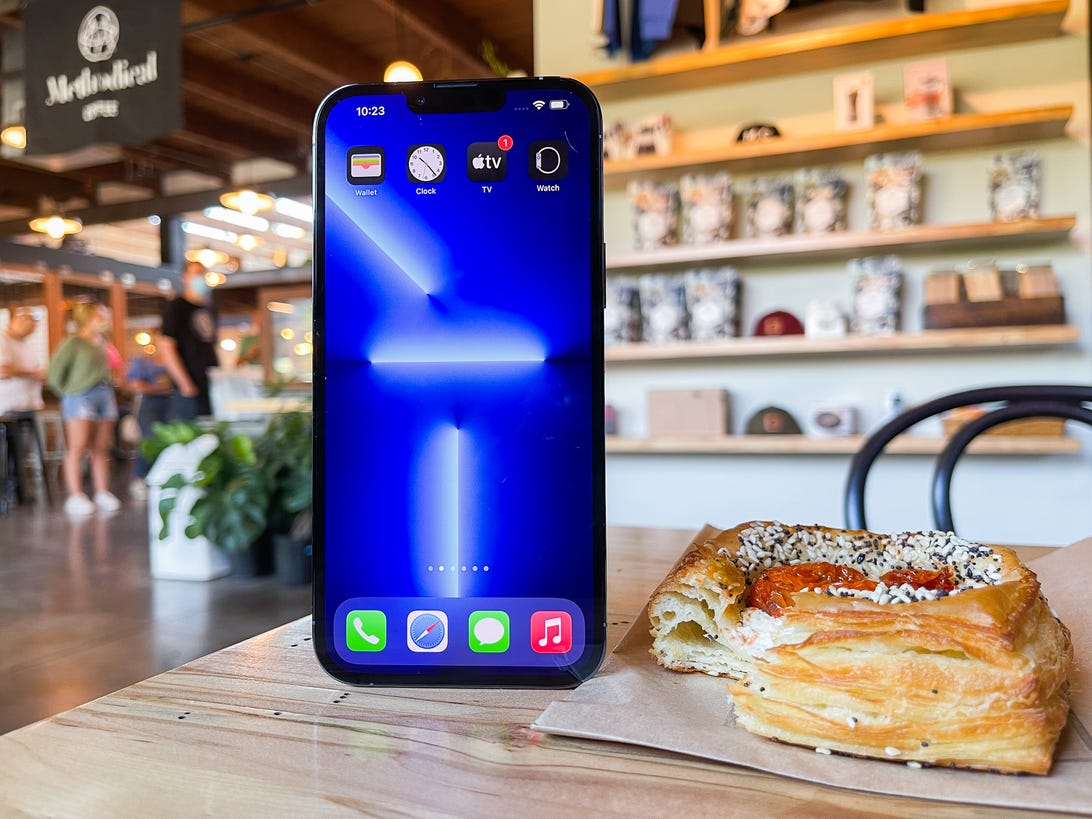
The iPhone 13 Pro Max.
Patrick Holland/CNETThe biggest upgrades we're expecting to see from next year's flagship iPhone come down to the camera, design and screen size. But it's the reported iPhone 14 Max that I'm most excited about, which is said to be a supersize version of Apple's standard next-gen iPhone.
Apple will ditch the iPhone Mini and instead add another 6.7-inch iPhone to the mix next year, according to Nikkei Asian Review. That means the iPhone 14 lineup may consist of two 6.1-inch models (the iPhone 14 and iPhone 14 Pro), and two 6.7-inch versions (the iPhone 14 Max and iPhone 14 Pro Max).
Apple's iPhone 14 Max will seemingly be aimed at those who want a larger screen but don't necessarily care about the other upgrades that come with Apple's Pro line, like a triple-lens camera and lidar sensor. It could be a great choice for iPhone fans who've been waiting for a gigantic display but don't want to splurge on the $1,099 iPhone 13 Pro Max.
We'll probably have to wait until the fall to learn more about Apple's future plans for the iPhone.
Google Pixel 6A
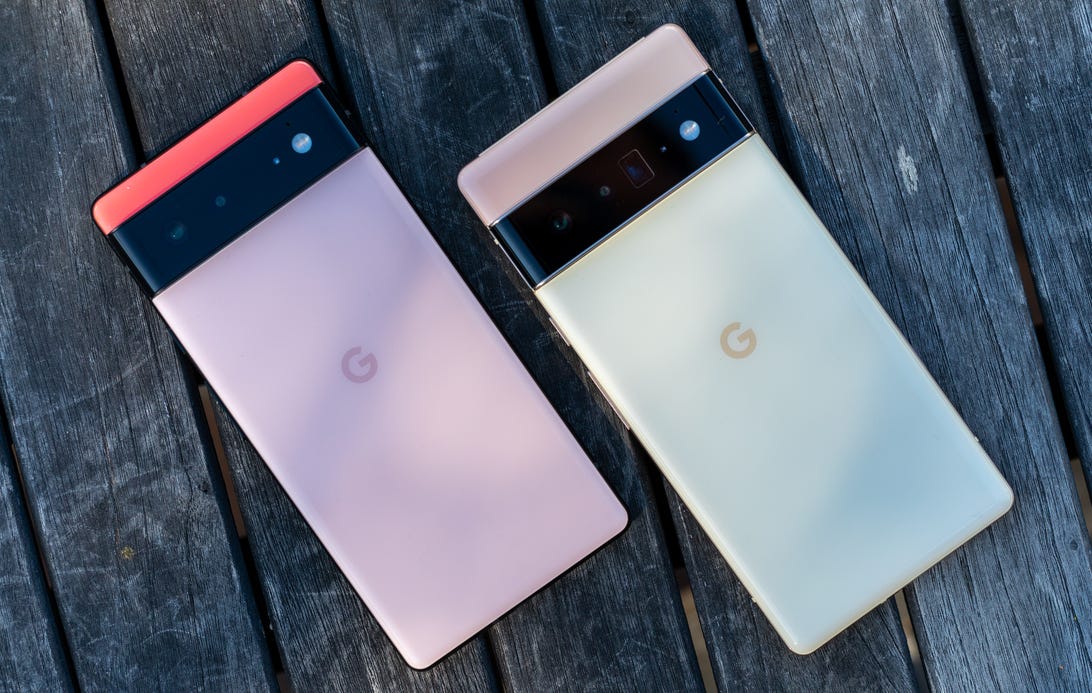
Google's Pixel 6 smartphone, left, and larger Pixel 6 Pro
Stephen Shankland/CNETGoogle's Pixel 6 is already a great value at $600. But if the company keeps with its current pattern, we could see an even cheaper version of the Pixel 6 later this year called the Pixel 6A.
The Pixel 6A is expected to have a lower resolution 12.2-megapixel main camera compared to the Pixel 6's 50-megapixel wide camera, according to specifications that 9to5Google discovered. But it will reportedly have Google's Tensor chip like its pricier siblings and a 6.2-inch display, making it slightly smaller than the 6.4-inch Pixel 6. The design may also closely resemble that of the Pixel 6, according to renders from blog 91mobiles and prominent leaker Steve Hemmerstoffer, who runs the Twitter account OnLeaks.
Google isn't new to the budget smartphone space. But I'm excited to see what its new Tensor chip could bring to a phone at this price, provided the rumors turn out to be true. It feels like Google has finally found the right balance of affordability and premium features with the Pixel 6, and I'm hoping this approach trickles down to its next low-cost smartphone, too.
Google launched the Pixel 5A and Pixel 4A in August, so there's a chance we could see the Pixel 6A around then. But the company also has a history of announcing new products during its I/O developer conference, which typically takes place in May, or during its fall product launch event.
Google Pixel Fold (or Pixel Notepad)
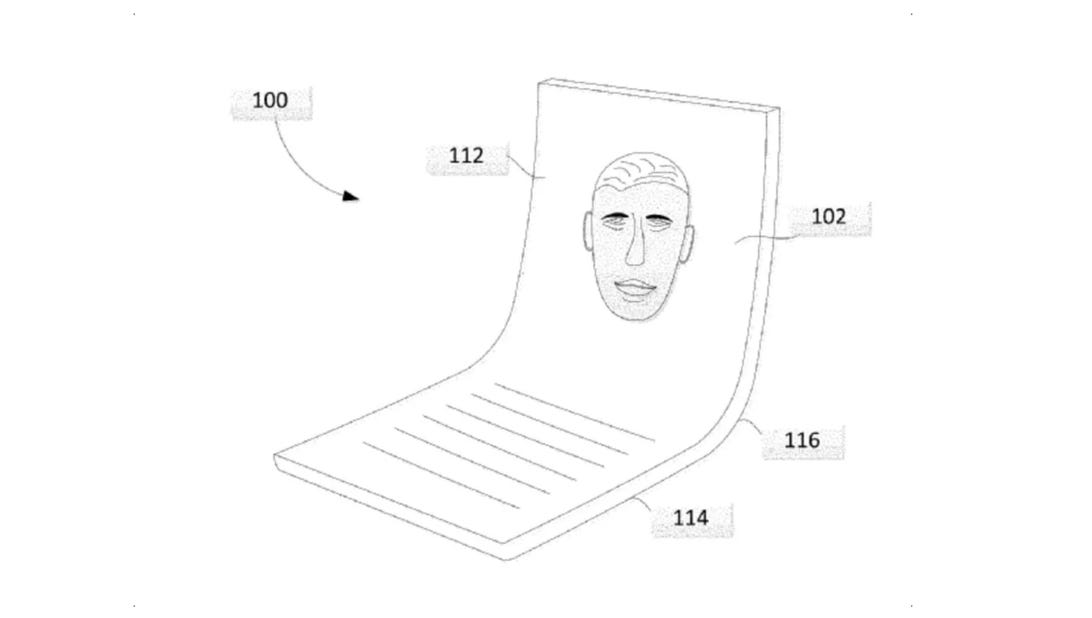
An image from a Google patent application for a foldable device.
GoogleGoogle hasn't said a word about any plans to launch a foldable Pixel phone, but rumors have been picking up steam lately. The most recent leak comes from 9to5Google, which reports that Google's first flexible phone could be called the Pixel Notepad. But perhaps more interestingly, the report also suggests this so-called Pixel Notepad could be cheaper than Samsung's Galaxy Z Fold 3, which costs $1,800. That's a big deal, because high prices have been one of the biggest setbacks of today's foldable phones.
In terms of design, Google's foldable phone will likely be similar in shape to Oppo's Find N rather than to Samsung's Galaxy Z Fold 3. That's according to animations that 9to5Google found in Android 12L, Google's Android software designed for larger-screened devices like tablets.
But the camera could be a step down from the Pixel 6's, as 9to5Google reports that Google's foldable may have the same camera sensors as the Pixel 5. The publication reportedly found references to the Pixel Fold's camera sensor in the Android package kit files -- i.e. the files used to distribute and install Android apps -- for Google's camera app.
If Google's foldable does end up having a lesser camera than the Pixel 6, it's possible that Google may have made this compromise to achieve a competitive price and keep the device slim. Other files associated with Google's camera app also include code that references a potential 2022 launch date, according to 9to5Google, suggesting that the search giant may indeed announce its first foldable this year.
Foldable phones are still expensive and come with many limitations. But Google's current approach to smartphones has made me hopeful that it'll bring something useful -- or at least interesting -- to this space. Take the Pixel 6 and Pixel 6 Pro, for example, both of which include exclusive features that make use of Google Assistant. These include Wait Times, which displays projected wait times before calling a toll-free number, and Direct My Call, a tool for transcribing automated menus when dialing toll-free businesses. Both of those additions prove Google is thinking about ways to improve the core functionality of smartphones. I'm hoping it will take a similar strategy toward foldable devices, especially now that Google has started making its own phone chips.
Samsung Galaxy Z Fold 4
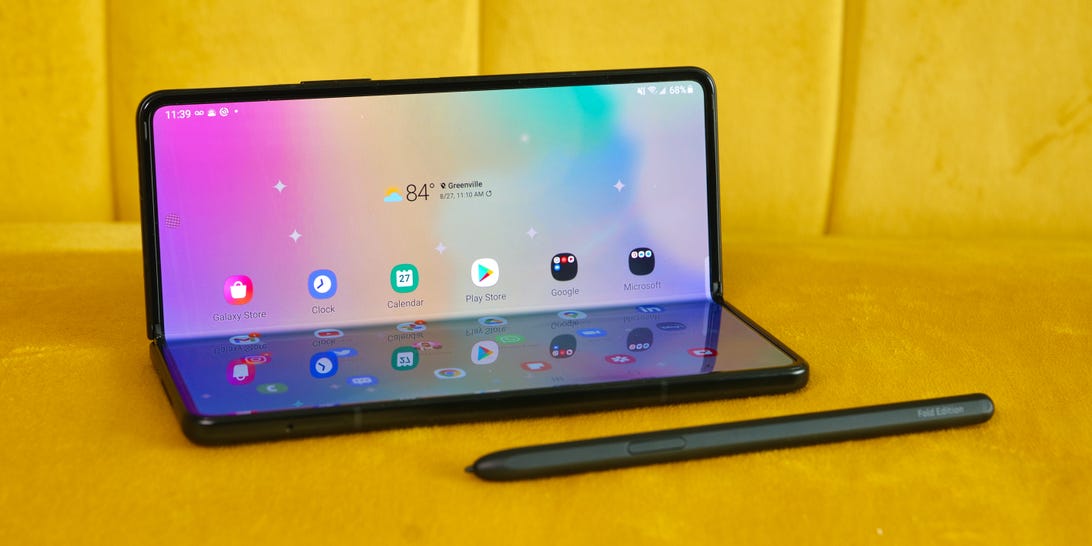
The Galaxy Z Fold 3 has nearly all the refinements you could ask for but still feel like it's missing a purpose.
Patrick Holland/CNETSamsung's Galaxy Z Fold 3 is the most polished foldable phone I've used, and it's close to being the first foldable phone I'd recommend. But it's still much more expensive than the average phone, and the Z Fold 3's unconventional design still makes it feel awkward to use as a regular phone.
Given the progress Samsung has made in foldable phones so far, I'm excited to see how it addresses these shortcomings moving forward. We haven't heard much about Samsung's future plans when it comes to foldable phones. But since Samsung is already on its third generation of the Z Fold since launching the original in 2019, I wouldn't be surprised to see another version launch this year.
Samsung also said it sold four times as many units of the Galaxy Z Fold 3 and Galaxy Z Flip 3 than it did of its previous foldable phones throughout 2020. That alone suggests demand for the Z Fold 3 and Z Flip 3 has been solid at the very least, giving Samsung reason to push full steam ahead.
If Samsung does launch another Galaxy Z Fold this year, we can probably expect to see the usual slate of updates, such as a newer processor and slightly improved design. But I'd also like to see longer battery life, a lower price, more software features that put the Z Fold's larger screen to better use and an updated design that makes the device less cumbersome when folded. It would also be great to see Samsung include the S-Pen stylus with future versions of the Fold rather than selling it separately.
Phones we were excited about that have launched in 2022
Apple iPhone SE (2022)
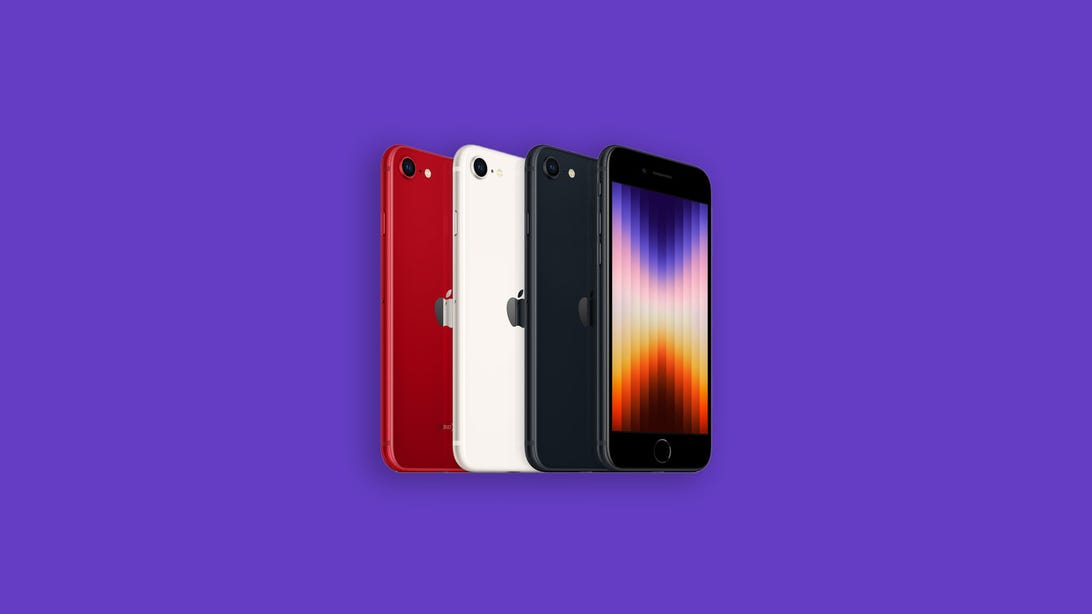
Apple's 2022 iPhone SE
AppleApple announced the third-gen iPhone SE during an event on March 8 in its first product launch of the year. As the rumors had predicted, the 2022 iPhone SE has 5G support and the same A15 Bionic processor found in the iPhone 13. Apple also says it's improved the phone's battery life and camera quality, although it still has a single 12-megapixel lens similar to its predecessor. The company also slightly increased the price to $429 compared to the 2020 version which started at $400.
The second-gen iPhone SE stood out for its balance of great performance, affordability and portability. Apple has seemingly maintained that strategy with the new iPhone SE, but we'll know more once we've had the chance to test it.
Samsung Galaxy S22 Ultra
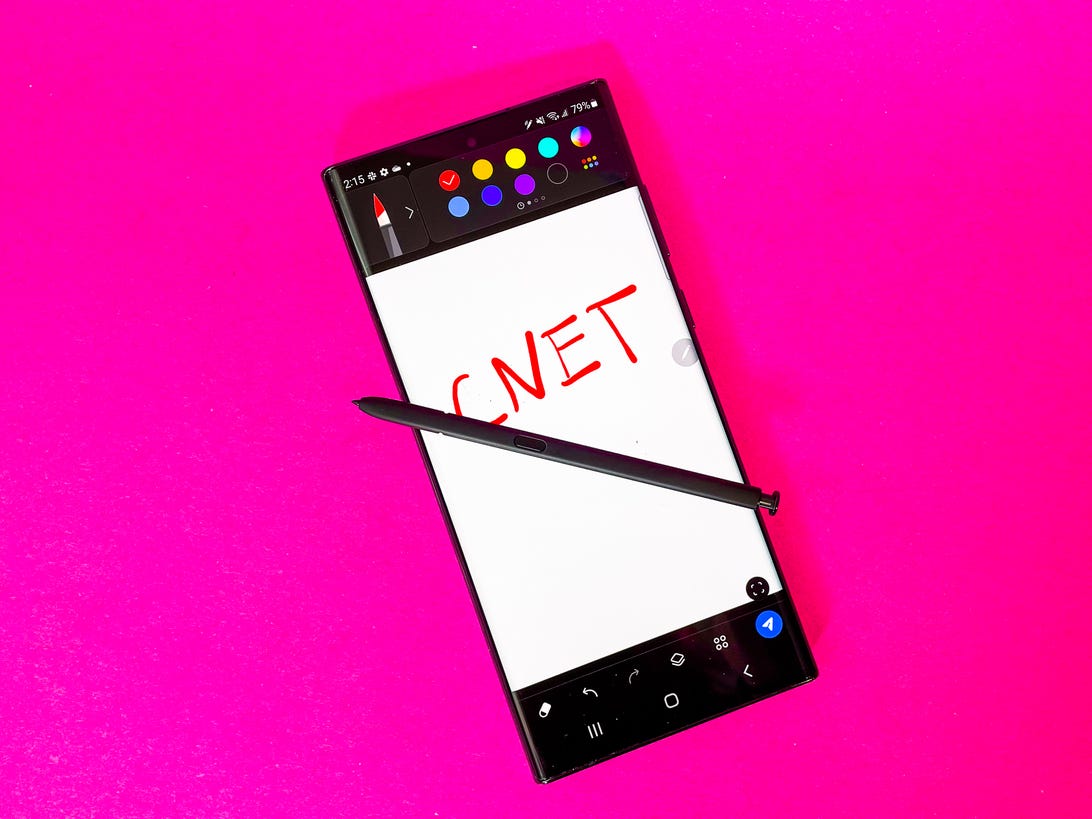
Samsung's Galaxy S22 Ultra
Lisa Eadicicco/CNETFans of Samsung's Galaxy Note lineup have something new to be excited about. With an included stylus that you can store inside the phone, a fresh design with more pronounced corners and a quadruple-lens camera, The $1,200 Galaxy S22 Ultra is essentially Samsung's Galaxy Note successor.
It has a spacious 6.8-inch screen just like Samsung's previous Galaxy S21 Ultra, making it ideal for those who do a lot of reading, watching movies or taking notes on their mobile device. Samsung has also improved the way all three of its Galaxy S22 phones take photos in the dark. But at $1,200, it's one of the most expensive phones that Samsung sells. The battery life could also be better, especially for such an expensive phone. But we still recommend it for those who want the one of the best cameras and biggest screens available on a phone.
Samsung Galaxy S21 FE
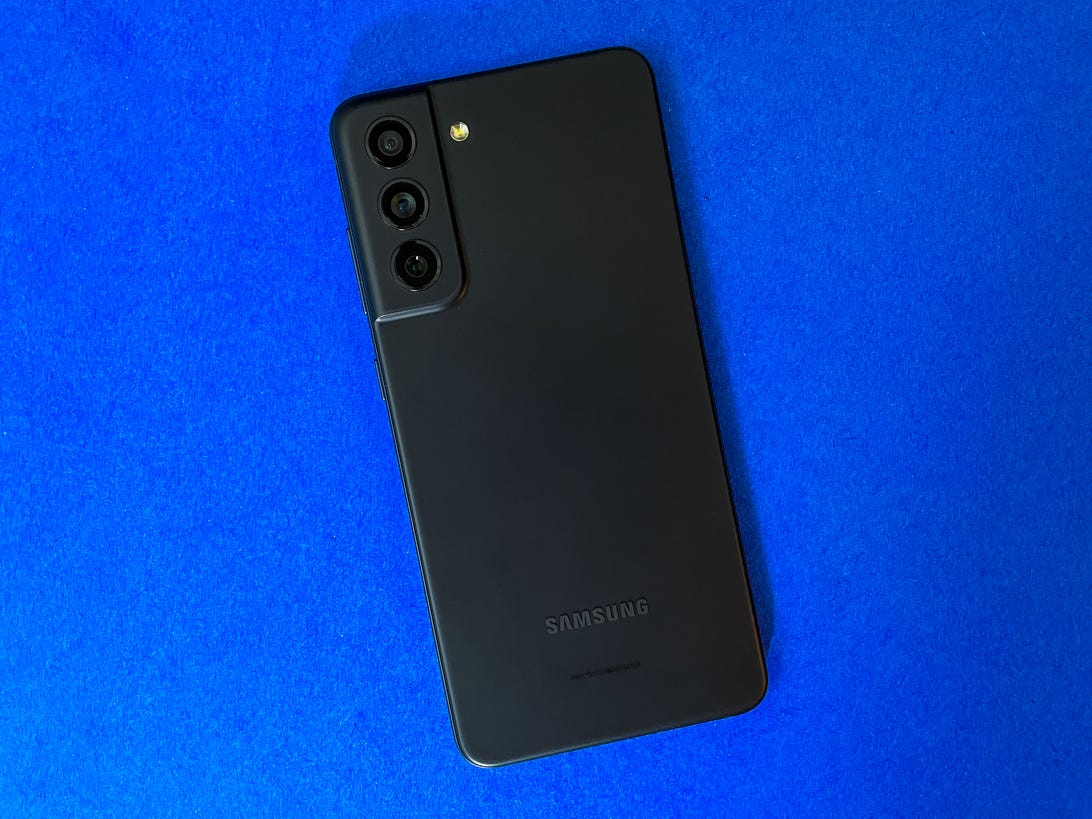
Samsung's Galaxy S21 FE
Lisa Eadicicco/CNETSamsung's $700 Galaxy S21 FE, which launched in January, is basically a diet version of the Galaxy S21. It has the same processor as the Galaxy S21 along with a larger screen and battery, but comes with a less sharp telephoto lens. There's also a 32-megapixel selfie camera on the front, which takes more detailed images than the Galaxy S22's 10-megapixel front camera.
Samsung launched the device just before introducing the Galaxy S22 lineup in February, which made for awkward timing. If you're trying to decide between the two, the Galaxy S21 FE is the better choice if you want a larger screen and don't mind sacrificing camera quality to save $100. But the Galaxy S22 has a newer processor, much improved camera that can also take better photos in the dark and a more elegant design.
OnePlus 10 Pro
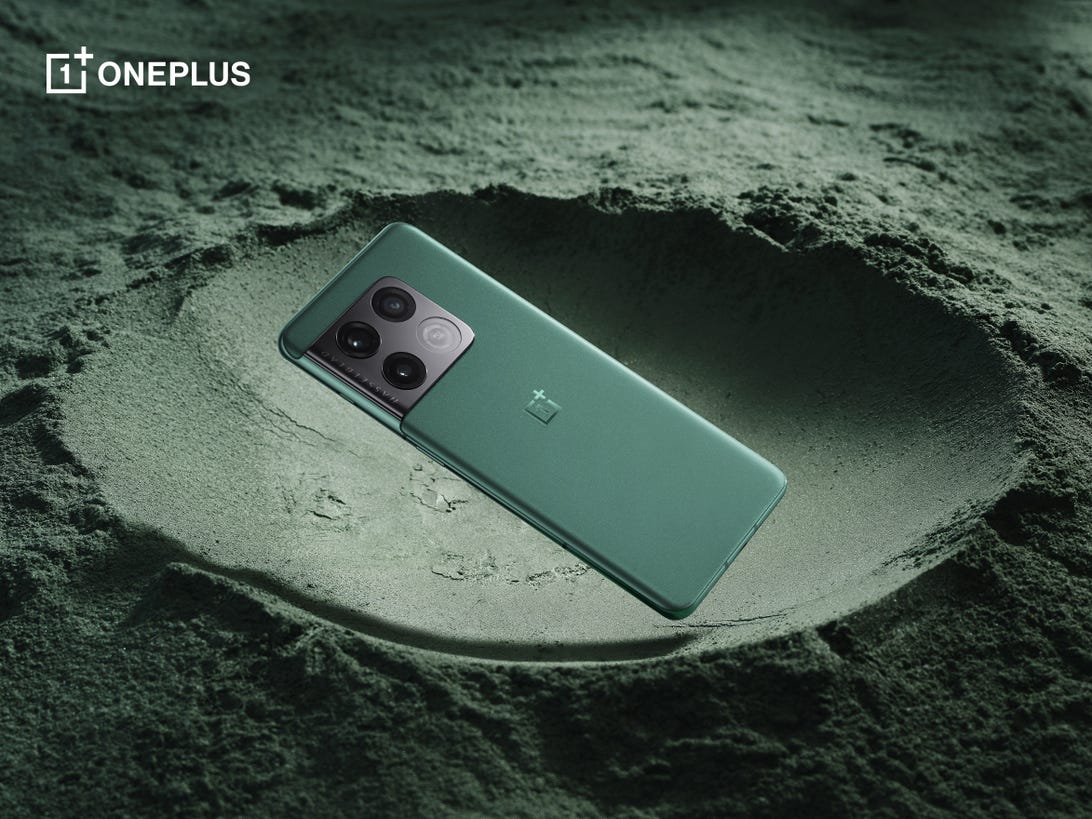
The OnePlus 10 Pro
OnePlusThe OnePlus 10 Pro debuted in January, although it won't launch in markets outside of China until March. While we haven't tested it yet, the device seems promising based on the details we've learned about its camera, charging speed and other specifications. The OnePlus 10 Pro runs on Qualcomm's new Snapdragon 8 Gen 1 processor, has a 6.7-inch OLED screen that can boost its refresh rate up to 120Hz and supports 80-watt wired charging that should be noticeably faster than the competition. The phone also comes with a triple-lens main camera with a 48-megapixel main camera, 8-megapixel telephoto camera and 50-megapixel main camera. We'll have to wait until we try it ourselves to know if it lives up to the hype.
Looking for more advice about the phone you currently have? Check out our guide to the Galaxy S21's best features, the iOS 15 settings you should change on your iPhone and how to get the most out of your Pixel 6.









 Add Category
Add Category